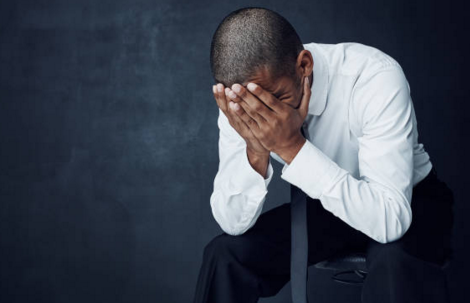There has been a concerning lack of attention to the health and well-being of Black men, and it’s crucial that we raise awareness about improving their health and addressing the health disparities they face. This realization struck me when I heard an artist speak at the BET Awards, urging Black men to support Black women in the fight for women’s rights and reproductive health.
While this cause is undeniably important, it’s disheartening to see that Black men remain largely invisible in the national conversation about health, both to the broader public and even within the Black community’s efforts to promote mental and physical well-being.
While we actively advocate for women’s health rights, we must also remember that the health of Black men consistently ranks among the lowest across various demographic groups in the United States. Shockingly, the evidence highlighting the health and social factors contributing to morbidity and mortality among Black men has largely been ignored, amounting to a public health crisis.
Men, in general, are 24% less likely than women to have seen a doctor in the past year, but they are 32% more likely to be hospitalized. However, Black men face even greater challenges accessing healthcare, with 75% fewer of them having health insurance compared to white men. Moreover, 30% of all men, as opposed to 19% of women, lack a regular physician.
Even when considering educated Black men with well-paying jobs, their life expectancy and overall health outcomes do not significantly improve compared to white men. Black men still suffer disproportionately from chronic illnesses like cardiovascular disease, diabetes, and cancer.
In terms of life expectancy, Black men have the lowest at just 69 years, White men have an average life expectancy of 76.6 years, White women 81.1 years, and Black women 78.2 years.
The shorter life expectancy of Black men means that they often don’t get to enjoy the full benefits of what they’ve contributed to Social Security. For instance, people born in 1960 can begin receiving their complete Social Security benefits at age 67. However, it’s worth noting that, as per data from the Centers for Disease Control and Prevention, Black men born in the same year had an average life expectancy of only 61 years. This significant disparity highlights how many Black Americans may not have the opportunity to benefit from the Social Security system fully.
As a publisher of a newspaper and someone involved in First Aid for Mental Health, I’ve also noticed a conspicuous absence of discussions on the national stage about the mental health of Black men. This lack of discourse is likely due to negative stereotypes and representations of Black men in media and culture, making it challenging to address mental health issues openly.
Researchers have sounded alarms about the rising rates of suicide among young Black men, but it seems that Black leaders, the Black community, and especially Black women have not paid enough attention.
Once again, Black men feel invisible in the broader conversation about health, wellness, and mental stability, despite the alarming suicide rates among them. These men are fathers, husbands, uncles, and sons, and yet their well-being is often overlooked.
It’s also unfortunate that even Black women sometimes fail to recognize the importance of mental stability in Black men. When a man expresses the need for mental help, he may be seen as weak or unmanly.
Many Black men suffer alone! Even married, they suffer alone! They suffer in silence!
Many Black men suffer silently, even within their marriages and families. They bear the weight of racism, economic oppression, political discrimination, and societal estrangement from Black women. They’ve become adept at masking their struggles, both in public and at home. Everything seems fine until it’s not. Regrettably, there is often more support for unhealthy and toxic lifestyles among Black men than for nurturing a healthy mind, body, and soul.
In 2015, a study revealed higher suicide rates among African American children aged 5 to 11 compared to Caucasian children, marking a concerning trend. While most studies show that Black men are more likely to die by suicide, with Black women more likely to attempt suicide, recent research has highlighted that Caribbean Black men in the US have the highest suicide attempt rate within the African American community.
It’s crucial to clarify that this discussion is not meant to downplay the efforts of women in their pursuit of equality and rights. Instead, it’s a call to action to include Black men on the healthcare agenda.
We need to break free from the toxic cultural conditioning that pits us against each other. Throughout history, Black men and women have worked together as a team through adversity, from slavery to Jim Crow, and during the Civil Rights Movement. We still face common challenges today, and it’s time we recognize and support each other.
Please, see us. We are here, and many of us are in pain.

